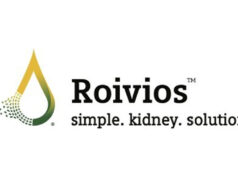 Artificial intelligence (AI) technologies offer clinicians a variety of opportunities for taking earlier action on kidney problems. Several technologies allowing the prediction of renal issues were showcased recently at the 2022 American Society of Nephrology (ASN) Kidney Week (3-6 November, Orlando, USA).
Artificial intelligence (AI) technologies offer clinicians a variety of opportunities for taking earlier action on kidney problems. Several technologies allowing the prediction of renal issues were showcased recently at the 2022 American Society of Nephrology (ASN) Kidney Week (3-6 November, Orlando, USA).
Acute kidney injury (AKI) is common in patients in intensive care units, and predicting which patients are at risk can help clinicians take appropriate preventive measures. Investigators recently developed an artificial intelligence-based model to help make such predictions and demonstrated it at ASN Kidney Week 2022.
Among 16,785 adults admitted to the intensive care unit from 2015–2020 in Taichung Veterans General Hospital, 30% developed AKI. An artificial intelligence-based AKI prediction model based on these patients’ data (21 features including urine trend and serum creatine) was validated in patients from four other medical centres (2,874, 10,758, 12,299, and 12,483 patients, respectively, with a wild range of AKI incidence of 24.9– 67.2%). The model was accurate at predicting AKI 24 hours ahead of time.
“Early prediction of AKI ahead of 24 hours may help clinicians initiate timely interventions to prevent AKI from happening, or alleviate its severity,” said corresponding author ChunTe Huang (Taichung Veterans General Hospital, Taiwan). “Our model could be easily shared and integrated to different hospitals to provide a real-time risk prediction in electronic health information systems.”
This study was titled: “Machine learning for development of a real time AKI risk prediction model in ICU with external validation and federated learning at five medical centers: From model development to clinical application”.
AI prediction of renal issues also encompasses serious kidney-related complications—or major adverse kidney events—which are common after hospitalization for various medical problems. Also showcased at ASN Kidney Week 2022 was an artificial intelligence-based algorithm for predicting a patient’s risk of major adverse kidney events within 90 days of hospital discharge.
Scientists developed and validated their algorithm in 50,448 patients without baseline severe chronic kidney disease who were admitted to the University of Chicago between November 2008 and June 2020. The algorithm was developed using demographics, inpatient vital signs, and laboratory results. Within 90 days of discharge, 19.7% of patients developed a major adverse kidney event (AKI, chronic kidney disease, need for dialysis or kidney-related death), and the algorithm was accurate at predicting these events.
“Our work needs to be validated with outside data but it could be used to help prioritise follow-up with nephrology and primary care, as well as to determine which patients should (and should not) be sent for transplant or dialysis access evaluation,” said corresponding author Jay Koyner (University of Chicago, USA). “Similarly, combining our risk score with existing literature that shows acute kidney injury increases the risk of new congestive heart failure, we could potentially determine which patients should be seen by cardiologists.”
This study was titled: “Development of a Machine Learning Algorithm to Predict Major Adverse Kidney Events (MAKE) After Hospitalization”.












